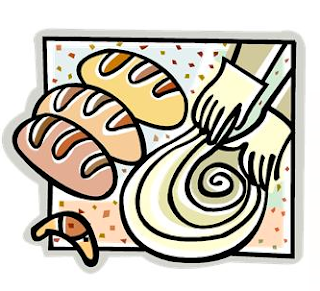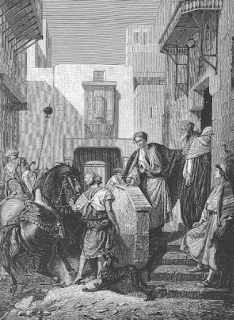TO CHEW ON: "The sower sows the word. And there are the ones by the wayside where the word is sown. When they hear, Satan comes immediately and takes away the word that was sown in their hearts" - Mark 4:14-15
Jesus' parable describes the ancient practice of sowing but the modern process of snatching. On reading Jesus' explanation of the Sower Parable, something inside me says, the things He's describing—the sown word immediately taken away, the no-root, the preoccupation with the cares of this world, riches and other things—is very familiar. It is how I often feel especially since the coming of the Internet, email, Facebook blogging, twitter, and the smart phone. Something is always vying for my attention—and it isn't usually the Word!
Tim Challies writes about technology and a Christian's response to it in The Next Story. He says:
"Here is one of the greatest dangers we face as Christians: With the ever-present distractions in our lives, we are quickly becoming a people of shallow thoughts and shallow thoughts will lead to shallow living. There is a simple and inevitable progression at work here:
Distraction —> Shallow Thinking —> Shallow Living
All of this distraction is reshaping us in two dangerous ways. First we are tempted to forsake quality for quantity, believing the lie that virtue comes through speed, productivity and efficiency ... Second, as this happens, we lose our ability to engage in deeper ways of thinking—concentrated, focused thought requires time and cannot be rushed" - Tim Challies, The Next Story, Kindle Location 2037.
Isn't that what Jesus is talking about here—letting God's words, thoughts and principles land, penetrate, germinate, sprout, grow, and produce fruit in our lives? We do that as we think deeply and at length about what the Bible says, relating its teachings to our ways of being and acting.
Though our outward ways of relating Jesus' teachings and the Bible to our lives may be different from how people would have done it in the first century, our motivations and trip-ups are so similar. God's word snatched away, shallowly rooted, and choked is something of which we need to be vigilant more than ever!
PRAYER: Dear God, this ancient warning about distracted living is modern. Help me to discipline myself to turn off my devices and listen to You and let Your words preoccupy me. Amen.
PSALM TO PRAY: Psalm 96
The Bible Project VIDEO: Mark (Gospel Series)
*************
Unless otherwise noted all Scripture quotations are taken from the New King James Version®. Copyright © 1982 by Thomas Nelson, Inc. Used by permission. All rights reserved.



















